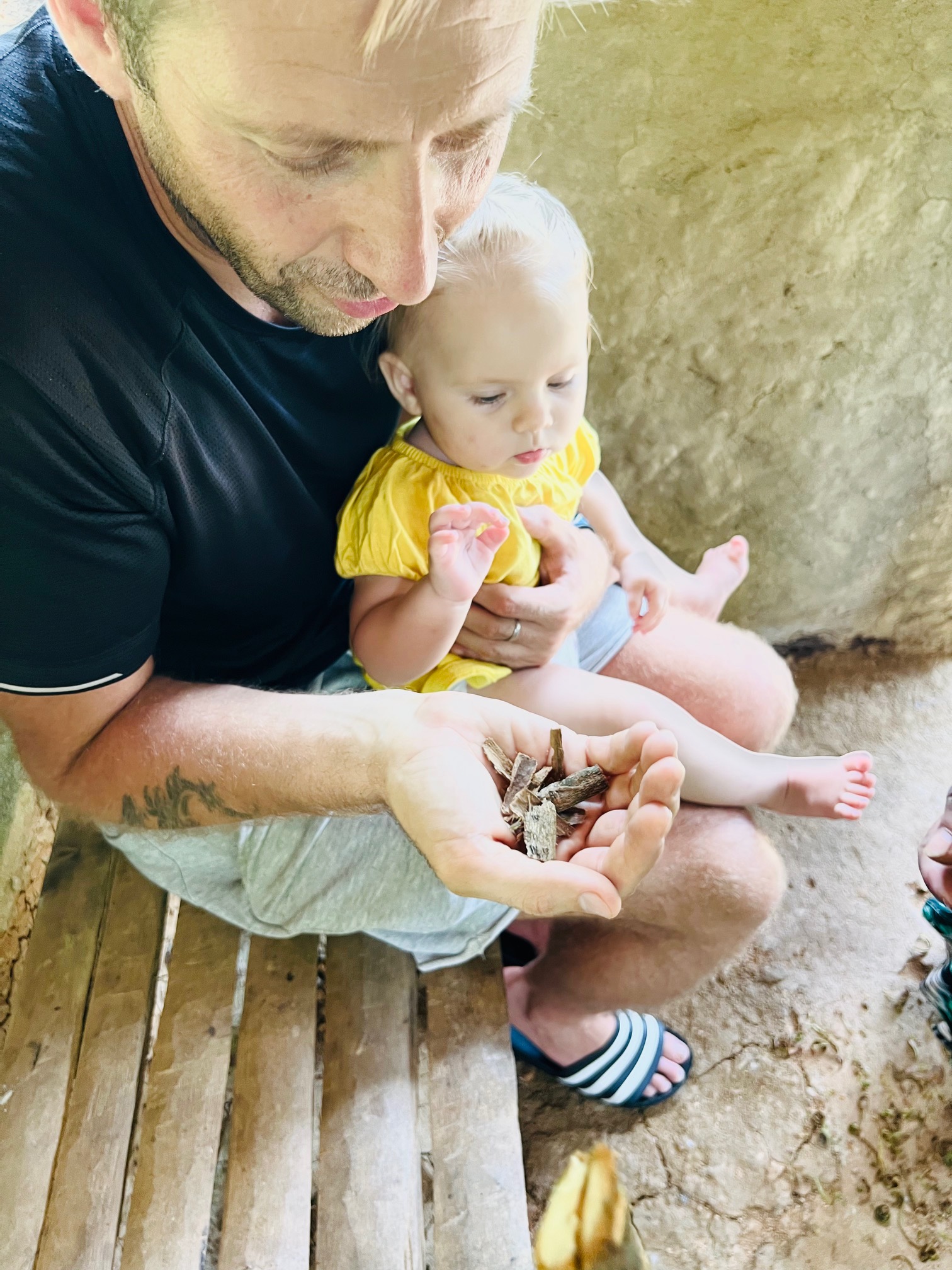What is Worldschooling?

As we are approaching 3 year anniversary of full time travel, only now I can fully understand what is worldschooling. I have met with a lot of families that are doing worldschooling, may it be full time traveling with their little ones or taking a gap year to travel, or even just a month or two a year.
Here I will try to break it down what worldschooling is.

Worldschooling is an educational approach where learning takes place through real-world experiences and travel, rather than in a traditional classroom setting. It involves exploring different countries, cultures, and environments to provide a more holistic and hands-on learning experience. We (worldschooling families) often believe that exposure to diverse cultures, languages, and situations enhances a child’s education, fostering a broader perspective and a deeper understanding of the world. This approach can involve a combination of formal education, self-directed learning, and immersive experiences in various locations around the globe. Worldschooling is typically associated with families who prioritize experiential learning and seek to break away from conventional educational norms.
Worldschooling can take various forms, and families often customize their approach based on their preferences, resources, and the needs of their children. Here are different ways to worldschool:
- Full-Time Travel: Families may choose to travel continuously, moving from one location to another, experiencing different cultures, and integrating learning opportunities into the travel experience.
- Educational Tourism: Periodic extended trips focused on educational experiences, such as visiting historical sites, museums, and participating in local activities.
- Expat Living: Immersing in a foreign culture by living as expatriates in a particular country, allowing for a more extended and in-depth understanding of the local way of life.
- Cultural Exchanges: Participating in cultural exchange programs or staying with host families to gain a deeper understanding of the local community.
- Online Learning Platforms: Utilizing online educational resources and platforms to facilitate learning while on the move, enabling children to engage in formal coursework or self-directed learning.
- Unschooling: Embracing a child-led learning approach where education is driven by the child’s interests and curiosity, with little to no structured curriculum.
- Local School Integration: Enrolling children in local schools in different countries to experience the education system and culture firsthand.
- Volunteer Work: Involving children in volunteer projects or community service activities, providing hands-on learning experiences and a sense of social responsibility.
- Language Immersion Programs: Participating in language immersion programs or language schools to enhance language skills by learning and practicing in a native-speaking environment.
- Internships and Apprenticeships: Arranging internships or apprenticeships for older children to gain practical skills and insights in various fields.
- Boat or RV Living: Families may choose to live on a boat or in a recreational vehicle, traveling and learning while exploring different regions or countries.
- Culinary Exploration: Learning about different cuisines and culinary traditions by experiencing local food markets, cooking classes, and tasting regional dishes.
- Nature and Outdoor Learning: Exploring natural environments, engaging in outdoor activities, and learning about ecology and environmental science firsthand.
It’s essential for families to find a worldschooling approach that aligns with their goals, values, and the needs of their children. Flexibility, adaptability, and a willingness to embrace diverse learning opportunities are key elements of successful worldschooling experiences.
Worldscooling is a superb way for children to evolve (and as every child is different therefore worldschooling bring different things to the table for everyone) as worldschooling provides various benefits for children of all ages. Here are a few:
- Cultural Awareness and Global Perspective:
- Exposure to different cultures, languages, and customs fosters a deep understanding and appreciation for diversity.
- Developing a global perspective helps children see the interconnectedness of the world and encourages tolerance and open-mindedness.
- Adaptability and Resilience:
- Living in different environments and facing new challenges builds adaptability and resilience.
- Children learn to navigate unfamiliar situations, adapt to varying cultural norms, and develop problem-solving skills.
- Hands-On Learning:
- Worldschooling emphasizes experiential learning, allowing children to learn through real-world experiences.
- Visiting historical sites, museums, and engaging in local activities provides a hands-on approach to education, making learning more memorable and practical.
- Language Acquisition:
- Exposure to different languages in their natural context facilitates language acquisition.
- Children may become more fluent in multiple languages, enhancing their communication skills and broadening their linguistic abilities.
- Holistic Education and Life Skills:
- Worldschooling often goes beyond traditional academic subjects, incorporating life skills and practical knowledge.
- Children learn about budgeting, navigating public transportation, cultural etiquette, and other valuable life skills through daily experiences.
Parental involvement and support are crucial for maximizing the positive impact of worldschooling on children’s development. We have noticed this with our children and it gave us a new way as a family – we evolved TOGETHER and keep expanding and learning new things, skills and of course- learning about ourselves, how our relationships align or need work. It has been more than educational to say the least.
We hope more and more families see this way of living as a possibility and maybe, just maybe, more and more of them actually try it out. Much love. Forever grateful!